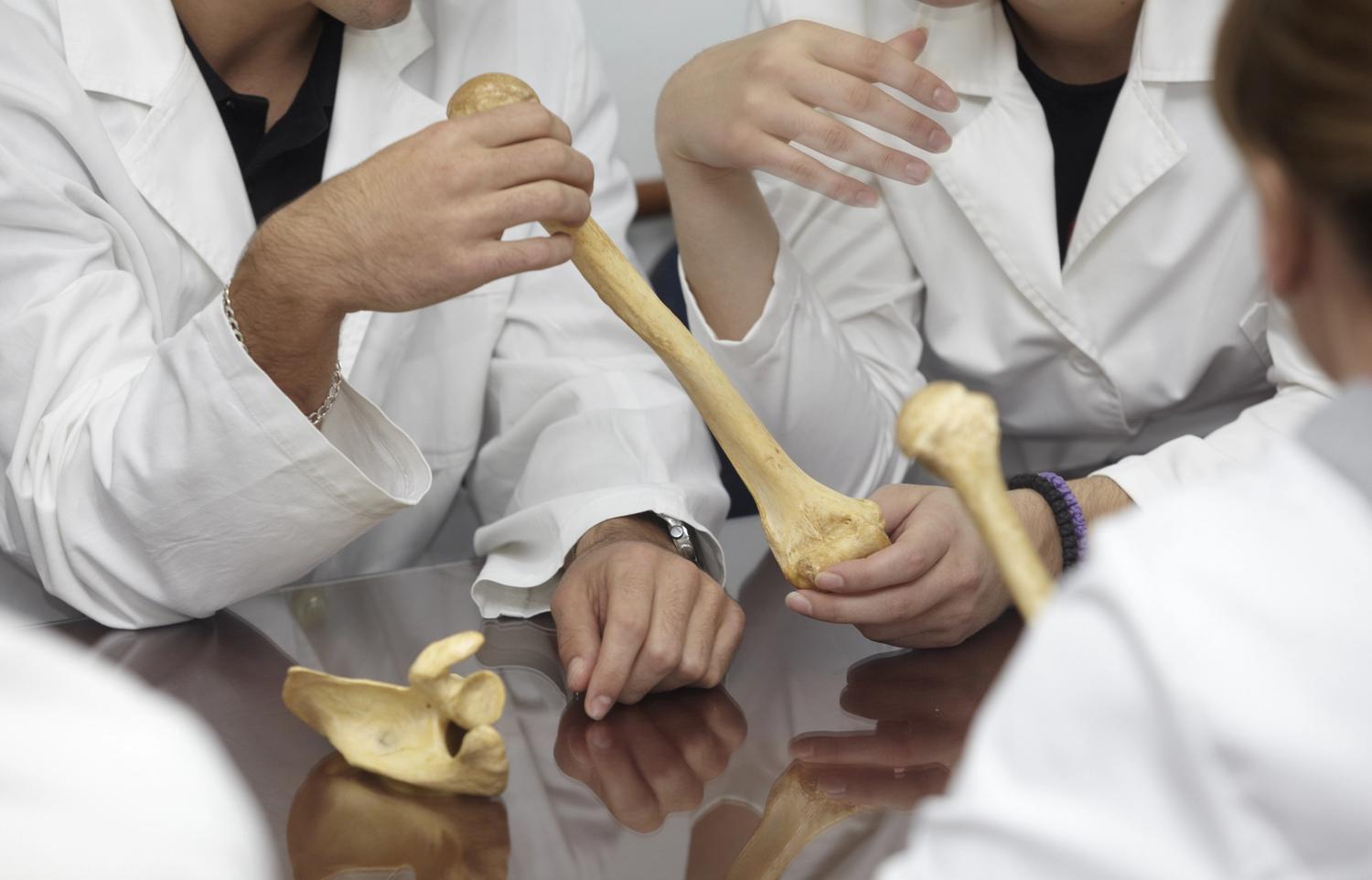11 Myths About Whole Body Donation
Interested in donating your body to science but still have questions about the process? Allow us to enlighten you.

Since there’s a lot of mystery and confusion surrounding whole body donation — at least there is for us — we enlisted the experts at United Tissue Network and MedCure.org to address some myths and explain the realities. If you’re interested in learning more about the basics of body donation, check out our article How To Donate Your Body To Science.
Myth 1: The organ donor symbol on the back of a driver’s license is sufficient documentation for body donation.
Fact: Organ donation is vastly different than body donation. They are completely separate programs with entirely different consenting processes.
Myth 2: Organ and body donation are mutually exclusive.
Fact: According to UTN Some organizations will accept a whole body donor who has also had a primary donation (live organ donation) or a secondary donation (corneas, whole eyes, skin, and bones) completed for transplant into a live patient. Primary and secondary donation are both for transplant purposes, while tertiary donation such as whole body donation is not for transplant purposes. Unfortunately, the circumstances in which people pass away prohibit many people from becoming primary or secondary donors. Since whole body donation is not for transplant the criteria are broader, so many more people are able to become donors.
Myth 3: Cause of death is determined during the body donation process.
Fact: Typically, cause of death is determined by the attending physician or the donor’s primary care physician, who then documents it on the death certificate. Whole body donation programs do not perform autopsies on donors. An autopsy is typically only performed when no witnesses are present at the time of death, if foul play is suspected, or if the family requests and pays for one.
Myth 4: Only the organs from a donated body will ultimately be used by researchers.
Fact: Whole body donation programs exist to assist institutions and organizations that rely on specimens, either in whole or part, to conduct research and training. Educational institutions use bodies for anatomy classes, and organizations developing medical devices and/or less invasive surgical procedures will often utilize whole body specimens. Other organizations may utilize certain sections of a body that correspond to their area of specialization (orthopedics, cardiology, trauma procedures, etc.).
Myth 5: Once all paperwork is completed, a donor is automatically accepted.
Fact: Even donors who seem like excellent candidates at the time of a whole body donation program’s pre-screening may not be eligible upon death. For example, if the donor passes and isn’t transported and placed into refrigeration in a timely manner, or if the death involved severe trauma to multiple bones. Furthermore, even after the point of acceptance, donors are occasionally declined. For example, inclement weather or unavoidable delays may prevent transportation or the next of kin may become unreachable. Many smaller donation programs and university programs may decline a donor due to lack of storage space and need.
Myth 6: Donors that are sick or have a disease do not qualify for whole body donation.
Fact: Researchers and educators often need donors with certain diseases and conditions. Most disease processes, including cancer and dementias, are acceptable, and there typically is no age limit. Depending on the program, a few diseases may result in decline, including HIV/AIDS and hepatitis B or C. Other possible health-related reasons for a particular program’s decline include a history of illegal drug use and being severely over or underweight.
Myth: If the zombie apocalypse occurs, donated bodies will be the most powerful and the first to roam the earth.
Fact: Who knows? We threw this on the list just to make sure you’re still paying attention.
Myth 7: An individual must pre-register far in advance to be accepted for body donation at the time of death.
Fact: Some programs will accept body donations after death, even if the individual was not registered at the time of passing. Many individuals make this decision for their loved one who is close to passing or has just passed away.
Myth 8: Individuals with tattoos and/or pacemakers do not qualify for whole body donation.
Fact: Individuals with tattoos, piercings, pacemakers, prosthetics, and other physical alterations can donate.
Myth 9: Donation has hidden costs.
Fact: Some whole body donation programs offer services that result in no costs to donors or their families. These programs cover all expenses related to the donation process. Although programs vary in what no-cost includes, services such as transportation, cremation, a copy of a death certificate, and the return of cremated remains to family is typical. Optional expenses unrelated to donation such as memorial services, obituaries, interment, or floral arrangements are typically not included.
Myth 10: Programs will pay me now for body donation later.
Fact: It’s unlawful to provide monetary incentives for an individual’s body donation prior to and after death.
Myth 11: When cremains (ashes) are received, they include ashes from multiple people or ashes of another person.
Fact: After an institution or facility is finished with the body, they may cremate the remains and send them back to the family or loved ones. It’s unlawful to cremate more than one individual at a time and licensed crematories are very closely audited and overseen by legislation. Reputable whole body donation programs conduct multiple security identification measures that ensure families are receiving the cremains of their loved ones.
[Article contributors: MedCure and United Tissue Network]
- Trusts Cheat SheetTrust us when we say this is as basic as we can make Trusts.Read more
- All You Need To Know About Advance DirectivesWhen you can’t make health decisions for yourself, this is the north star...Read more
- How To Create A Do Not Resuscitate Order (DNR)A DNR is a medical order that states you don't want cardiopulmonary...Read more
- How Organ Donation WorksIf the person who died was a registered organ donor, measures will be taken...Read more



